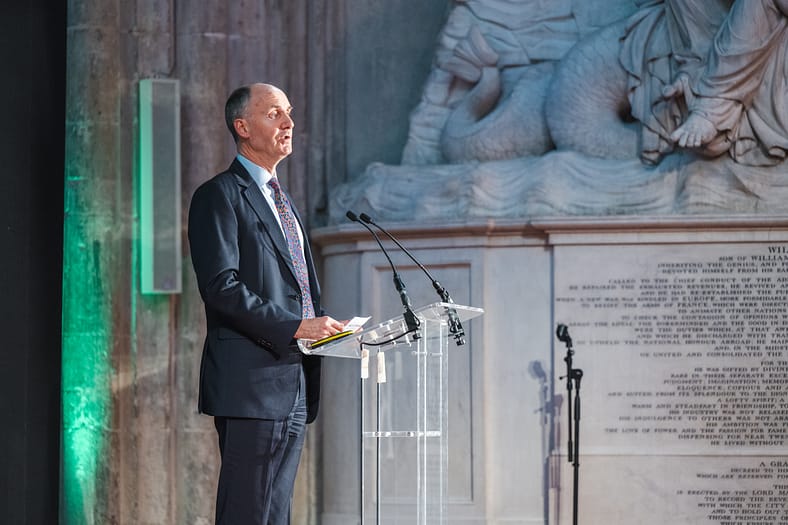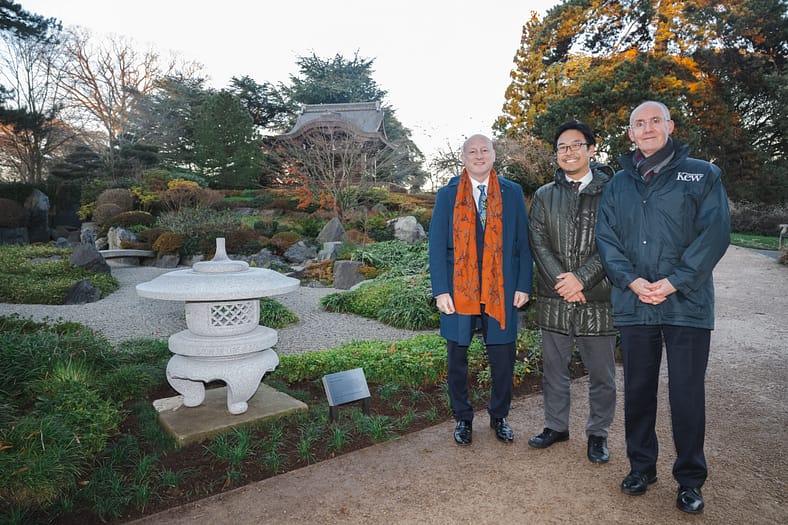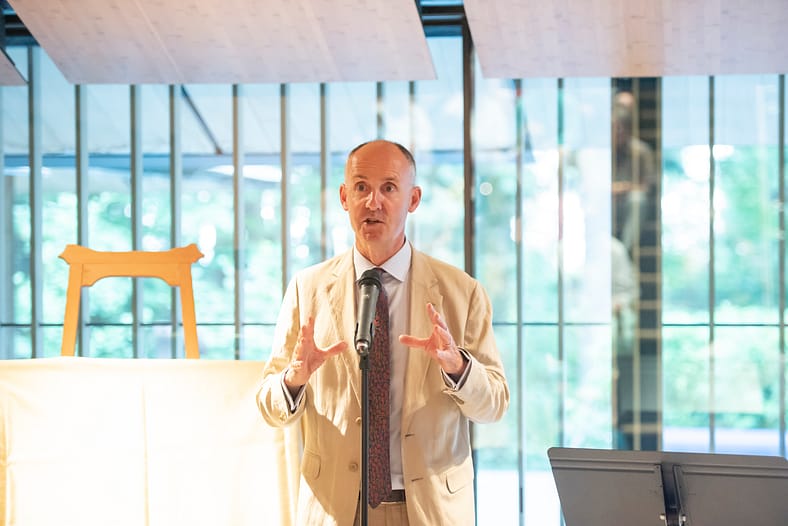
Japan Institute of Portland Japanese Garden partnered with Nobel Peace Center and the Royal Botanic Gardens, Kew for the Peace Symposium, Peacemaking at the Intersection of Culture, Art, and Nature in December 2022 in the United Kingdom. Below is a transcription of the opening remarks given by Richard Deverell, Director of the Royal Botanic Gardens, Kew. The transcription has been edited slightly for clarity.
“Ladies and gentlemen, thank you so much for your warm welcome. It is a great privilege and honor to be here today and to be working with our good friends and partners in Portland Japanese Garden. I think it is now at least four years ago, when Steve [CEO, Portland Japanese Garden and Japan Institute] emailed me out of the blue about this notion: Gardens, peace. Peace, gardens. We met and had a coffee just by the National Portrait Gallery, and, as you say, events intervened. So, four years later, here we are. And I confess, when this notion was first raised, I hadn’t really thought at all about the links between gardens and horticulture and peace. But, my conversation with Steve seeded that thought and I started to reflect upon these themes.
I think there are a number of thoughts that immediately come to mind that links this concept of gardens, landscape, horticulture, and peace. The first is perhaps most self-evident. Gardens are very safe and tranquil places. They encourage you to be convivial, to be honest, to perhaps drop some barriers to engage with your fellow humans. And I think even if you were angry or distressed, going into a garden would diminish your anger and distress. They are common, safe places in the broader sense of the word. Gardens are also universal. There is no country, no region, no tribe, no culture anywhere in the world that doesn’t have some tradition of gardening, that magical conversion of seeds into food or flowers. They are truly universal. Yet of course, they’re also extraordinarily diverse.

I remember in my gap year as a student, traveling in China, and I visited some of the historic gardens in Shuzo. To me, growing up in southern England, these gardens were almost bizarre: the aesthetic, the design, the culture, the history were so utterly different to a traditional English garden. So, you have universality, and yet, extraordinary diversity. Another great feature of gardens is they connect us to nature and nature is one of the most important issues and challenges facing humanity in the twenty-first century.
There is also a lot of evidence that being connected to nature is very good for you. It’s good for your mental and physical well-being. So that connection to nature is another very powerful theme. Gardens require nurturing. You have to work at them. They don’t just happen, or if you abandon them, they deteriorate. And there’s a saying I heard at Kew, which I hadn’t heard before – all horticulture is an exercise in optimism in that it’s always about something for the future – planting a seed is perhaps the most obvious example.

Two last thoughts. Gardens are never complete. Anyone that tells you, ‘I have finished it’ is speaking nonsense. Gardens are never complete. They require constant work, constant revision, constant change, and, again, I think that is resonant to the subject we are talking about today. And finally, gardens are places of great beauty and I think beauty is a very powerful thing in life. One of my aspirations for Kew, is that I would like every square meter of Kew to be beautiful. It should be special because I think beauty is a very powerful motivator. So these themes that I’ve run through, yes, they all relate to gardens but they also relate to peace and dialogue and trust and partnerships. Following my initial conversation with Steve, slightly perplexed, thinking, ‘Well, what is the link between gardens and peace?’, actually, I think there are many, many powerful links and it’s a theme that should be developed and explored and expanded and I hope that will be starting in London this afternoon. Thank you very much for inviting me and the institution I represent, The Royal Botanic Gardens, to this event this afternoon. Thank you.”
Japan Institute’s peace programming, including this Peace Symposium, is made possible through Robert and Deborah Zagunis.
